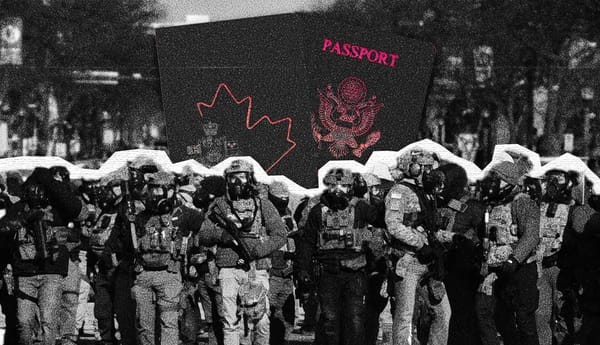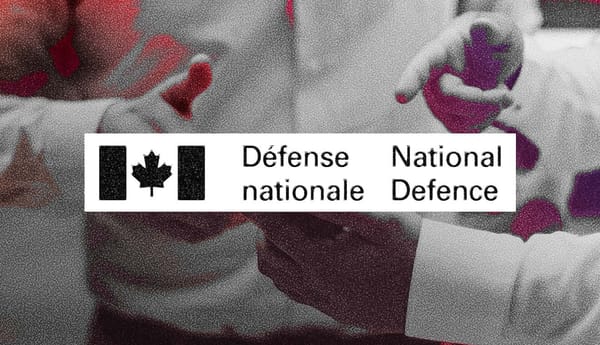The Carney government’s Bill C-2 marks an escalation in Canada’s cooperation with the United States on security and immigration, lawyers say, at a time when that country is abandoning any pretext of fairness and due process in its own system.
After announcing the bill on June 3, Minister of Public Safety Gary Anandasangaree told reporters he would talk to Tom Homan about the measures that same day.
Homan is U.S. President Donald Trump’s “border czar” who formerly headed up Immigration and Customs Enforcement (ICE), the agency that is rounding up migrants — including some who are in the U.S. legally — detaining them arbitrarily and deporting them to countries known for human rights abuses. One student was detained for six weeks simply for writing a pro-Palestine op-ed for her school newspaper.
“I think it should give us all pause,” said Shakir Rahim, a lawyer and director of the criminal justice program at the Canadian Civil Liberties Association, “when we have a neighbour down to the south where the rule of law is under attack, that we are making decisions that are eroding our rights and freedoms in response to that.”
Minister Anandasangaree also told reporters that parts of the bill were designed in response to “irritants” perceived by the Americans.
The bill denies the right of asylum to anyone who first stepped foot in Canada more than one year before their claim. The Canadian Council for Refugees called that provision worse than anything in U.S. law.
Advocacy groups also warn the bill will allow different levels of government to share people’s personal information with each other without the subjects’ consent.
The bill also expands surveillance powers, letting police obtain data from internet service providers without a warrant.
Agencies that serve refugees have said the bill scapegoats migrants and associates some of the most vulnerable claimants with security concerns like money laundering and drugs that they have nothing to do with.
It duplicates the racism, xenophobia and isolationism of the Trump administration, said Aisling Bondy, a lawyer and president of the Canadian Association of Refugee Lawyers.
“We’ve really caved to American demands over the past more than two decades now, and this is just another extension of that same pattern,” said Bondy.
Lawyers pointed to cooperation with border security measures after 9/11 and ongoing information-sharing agreements as earlier examples of this capitulation to the U.S.
Canada won the Safe Third Country Agreement, which prevents refugees who have passed through the U.S. from claiming asylum in Canada, after agreeing to cooperate on other priorities of the George W. Bush White House in 2002.
Macdonald Scott, an immigration lawyer in Toronto, said he’s spoken with multiple clients affected by the Canadian government sharing information with the U.S.
Currently, American border agents can request information on any third-country nationals and automatically receive biographic and biometric data from Canada. That system was expanded to cover permanent residents of both the U.S. and Canada last year.
The two countries also share information through the “Five Eyes” intelligence alliance, a multilateral agreement that also includes the United Kingdom, Australia and New Zealand.
One of Scott’s clients, a high-profile migrant rights activist, was prevented from entering the U.S. for a conference in 2013 because of information shared between the two countries. Another client was delayed on her way into the U.S. in 2023 and interrogated by the Federal Bureau of Investigation and ICE.
Scott said he feels “sick to my stomach” watching news about ICE’s raids. “They’re using ICE — and I saw this after 9/11 — as a way to attack activism.”
While Scott’s clients have been singled out for migrants-rights activism in the past, Trump is now using ICE to go after pro-Palestine activists, especially students.
Bondy said that even before Trump returned to power for his second term, there were ethical issues with sharing information with the U.S. Data collected in one country can be misinterpreted by authorities in the other, she said.
“Depending on what information the government gets, we don’t entirely know how that information was collected or where it came from. Especially in light of what’s going on down there right now, I think it’s pretty dangerous [for Canada] to rely on information that would have been collected and recorded by U.S. immigration officials at this point.”
A spokesperson for Immigration, Refugees and Citizenship Canada said that automated information-sharing with the U.S. was not being affected by Bill C-2, but did not respond to questions about the ethics of cooperating with ICE and other American immigration agencies.
“Information sharing between Canada and the United States is a crucial tool used for immigration screening and decision making,” spokesperson Isabelle Dubois said in a statement. “It helps us make efficient and informed decisions, protect Canadian safety and security, uphold the integrity of our immigration system, and support the travel of lower risk people.”






